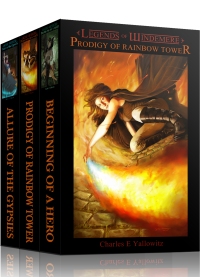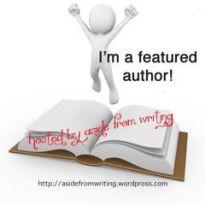This post originally went live on February 14, 2018. Weird that the first of the Top 5 are from early in 2018.

Yahoo Image Search
Adding drama into your writing can be tough and many are leery about adding this due it skewing toward the negative. Yet, it’s fairly unavoidable if you sit down and consider what can be born from it. We may even add it without realizing what we’re doing. There are days I think we all have different views and definitions of drama. Some people consider it a genre while others call it a literary tool. So, are there any tips that can cross every genre and be seen as universal?
- Drama tends to be seen as highly emotional, which means it can be the cornerstone of conflict. When a person or character goes through change, they have emotions that guide them just as much as thoughts. This is part of their growth, so we have to consider this in our writing. Without this type of drama, the characters become stagnant and never change. There might not even be a story at all because every event has at least a touch of drama.
- It doesn’t always have to be negative. A definition of drama is ‘an exciting and emotional series of events’. That doesn’t mean it’s always bad. Sure, there can be some downturns, but the characters can remain optimistic or happy. We tend to relate drama to characters being put through some type of trauma or being pushed to the brink of sanity. Yet, it really doesn’t have to be that way if you stick to the mentioned definition.
- You can still have humor when working with drama. There is a type of person who will crack jokes in the face of stress and despair. Others will do it when they’re happy. My point is that you can still have at least a basic level of comedy when drama is taking the spotlight. It’s risky though. You’ll have readers that don’t like this, but everybody has their own take on when the right time for humor is.
- Male characters are allowed to cry too. Doesn’t matter if people see it as a sign of weakness. Crying is a natural response to physical and mental pain. The character’s equipment doesn’t change this, especially if he’s struck in the equipment. That could be either a dramatic or comedic event.
- Drama doesn’t have to be the main plot point of a story. Sometimes, it works best as a subplot to give a specific character a stronger foundation. This is especially true for genres like fantasy, science fiction, and horror. Their focus can be more on the adventures in that world, which isn’t always drama. So, while the characters proceed along their path, these smaller, personal stories can help them evolve. It doesn’t even have to be for the main story, but to pose them as multi-dimensional characters. After all, those of us in the real world deal with our main job and personal dramas all the time.
- There should be a payoff for drama since it can be very taxing on the author, characters, and readers. Going through an unexpected and emotional event with no closure can feel like a waste of time. You don’t have to have a clear idea of the finale of the drama when you start, but it needs to be there. This also has to make sense within the context of the story. Twists are fun and can earn praise, but they can backfire if there’s no foundation to make them plausible.
- Never be ashamed of including drama within your story. These things happen in real life, so why should fiction be any different?





I love to include drama. Makes writing more fun. Thanks, Charles. Super post.
LikeLiked by 2 people
You’re welcome. Drama does keep things interesting.
LikeLiked by 1 person
Reblogged this on Chris The Story Reading Ape's Blog.
LikeLiked by 1 person
Thanks for the reblog.
LikeLiked by 1 person
Welcome, Charles 👍
LikeLike
Interesting. I add music to my poetry and always wished I could write music. The music definitely helps bring the passion into words.
LikeLiked by 2 people
Great use of music. People really undervalue it as an inspiration at times.
LikeLiked by 1 person
Great tips today.
LikeLike
Thanks. 👍
LikeLike
Reblogged this on TheKingsKidChronicles and commented:
This post helps clarify some things for me. Now I just need to practice doing it. Reblogged from https://legendsofwindermere.com
LikeLiked by 1 person
Thanks for sharing.
LikeLike
A great post! I can’t help thinking of Spider-Man and other superheroes who always have drama going on
LikeLike
Spider-Man definitely can’t stay drama free for very long. Depends a lot on how good the writer is too.
LikeLike
Reblogged this on Author Don Massenzio and commented:
Check out this post with 7 Tips to Being Dramatic . . . In Fiction from Charles Yallowitz via his Legends of Windemere blog.
LikeLiked by 1 person
Thanks for the reblog.
LikeLiked by 1 person
You’re welcome
LikeLike
I have a male character from an extremely macho society. He found tears in his eyes at the death of a loved one but had to beat them back for fear of appearing ‘weak’. I hope this comes over as dramatic. I think there’s quite a lot of drama in the novel (still undergoing re-writes). I hope readers eventually find it so as well.
Drama, I think, is important in any novel.
Thank you for this post,
LikeLiked by 1 person
Sounds like a powerful scene. What literary tools did you use to bring it across? Wow, that sounded more clinical than I expected.
LikeLiked by 1 person
Although I have 7 books published, I do not consider myself an expert writer. I’m unsure what ‘tools’ I used. I just went with my instincts. I had him blink tears away, pretending they were caused by the smoke from the funeral pyre, for a start.
LikeLike
Instincts work more often than we realize. They make the stories feel more natural.
LikeLike
Reblogged this on IdeasBecomeWords and commented:
Rather timely, this
brilliant post on
adding drama to
our plots 👌🏼💫
LikeLike
Thanks. 😁
LikeLike
It’s true that almost all readers are looking for some sort of intense experience when we read. Even manly men who scorn “sissy stuff” like romances will still find the drama. Just, for them, the drama is in races and chases and things blowing up.
LikeLiked by 1 person
Good point. Drama isn’t always romance. I’m not sure how to define it though. Tension?
LikeLiked by 1 person
Reblogged this on When Angels Fly.
LikeLike
Thanks for the reblog.
LikeLike
Welcome Charles.
LikeLike
Reblogged this on anita dawes and jaye marie.
LikeLike
Thanks for sharing.
LikeLike
I think good writing always includes drama…
LikeLiked by 1 person
It is very hard to avoid.
LikeLiked by 1 person
Pingback: Five Links Loleta Abi | Loleta Abi